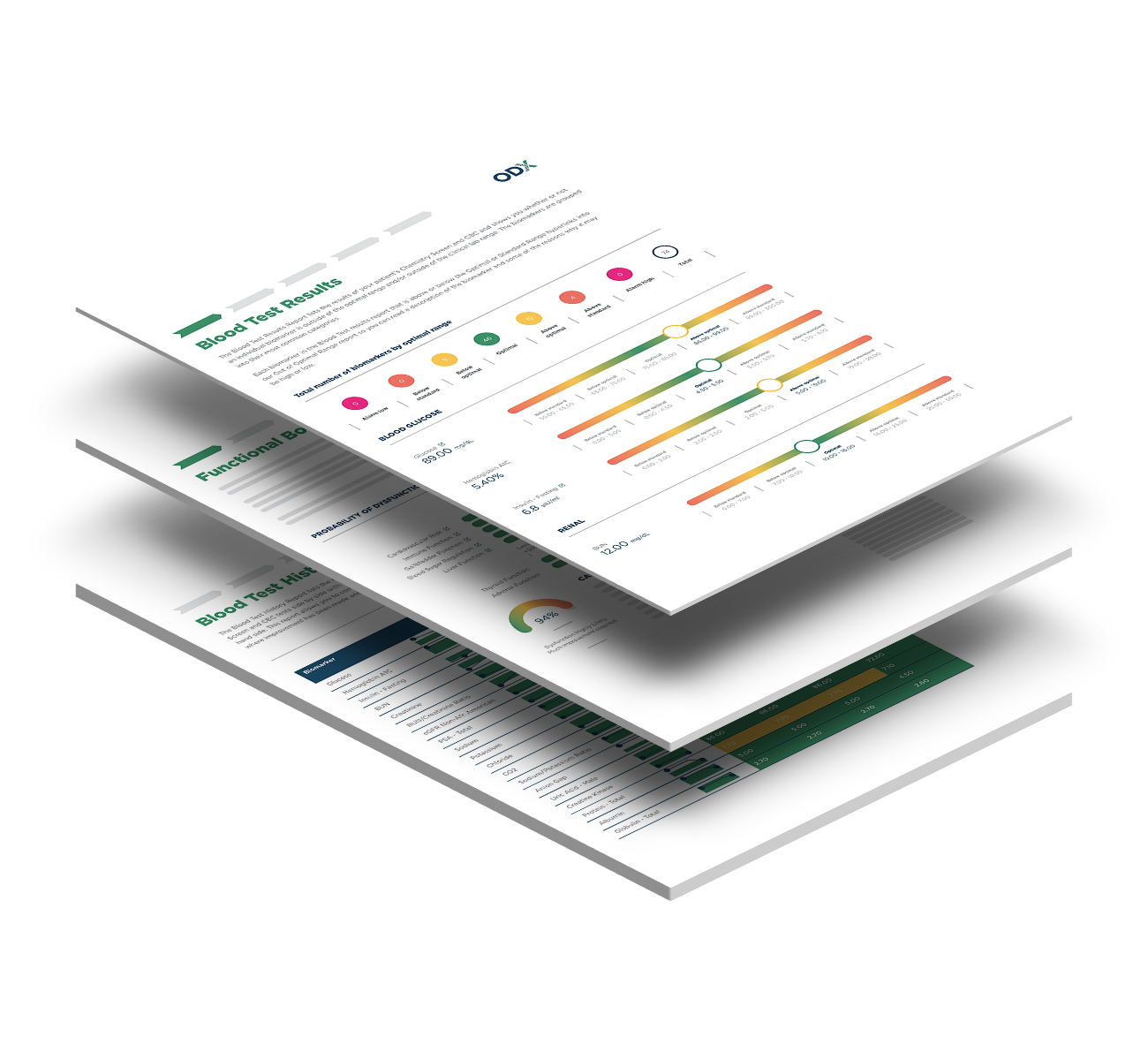Optimal Takeaways
Progesterone is an important hormone influencing men's health, including testosterone production, sperm function, and sleep quality. Low progesterone levels in men can negatively impact fertility, immunity, metabolism, and overall health, including cardiovascular, neurological, and skeletal systems.
On the other hand, high progesterone levels have been associated with prediabetes and type 2 diabetes in men and postmenopausal women. Balancing progesterone levels is crucial for maintaining overall health and well-being.
Standard Range: 0.2 - 1.3 ng/mL (0.64 - 4.13 nmol/L)
The ODX Range: 0.38 – 0.90 ng/mL (1.2 – 2.86 nmol/L)
Low progesterone in men may compromise fertility, immunity, metabolism, adiposity (Oettel 2004), and cardiovascular, neurological, and skeletal health (Taraborrelli 2015). Low levels may be associated with aortic abdominal aneurysm (Ohlsson 2022).
High progesterone was associated with prediabetes and type 2 diabetes in men and postmenopausal women (Jiang 2019).
Overview
Progesterone is a steroid hormone produced from cholesterol in the gonads and adrenal glands. It plays a vital role in fertility as a facilitator of spermatozoa function in males. Progesterone also directly affects the bones and the cardiovascular and nervous systems and is considered neuroprotective. Its use as a therapeutic agent in cerebral edema, Alzheimer’s disease, diabetic neuropathy, and osteoporosis is being explored (Taraborrelli 2015).
In men, progesterone can influence testosterone production, maturation of sperm cells, sperm capacitation, central nervous system function, sleep quality, behavior, immunity, kidney function, respiratory health, appetite, adipose tissue, and weight gain. Serum progesterone in men remains relatively low, similar to postmenopausal women, though levels can vary. A review of data from the German LURIC study revealed a lower mean serum progesterone of 0.38 ng/mL (1.21 nmol/L) in 1,015 men 20-90 years old, with no age-related changes. However, additional research indicates that healthy men may maintain a mean serum progesterone of 0.78 ng/mL (2.48 nmol/L) (Oettel 2004). Radioimmunoassay was used to measure progesterone in these studies.
Research suggests that higher progesterone may contribute to blood glucose dysregulation. A prospective cohort study of 2,359 subjects comprising men and postmenopausal women found that higher serum progesterone(LC/MS) levels were associated with higher fasting blood glucose and HbA1C and reduced beta cell function. The incidence of prediabetes and T2DM was significantly increased in men with higher progesterone levels of 1.00 and 1.4 ng/mL (3.18 and 4.45 nmol/L), respectively, versus 0.90 ng/mL (2.86 nmol/L) in controls (Jiang 2019).
Low progesterone and low estradiol, especially if low together, have been associated with a significantly greater risk of aortic abdominal aneurysms in men (Ohlsson 2022).
References
Jiang, Jingjing et al. “The effect of progesterone and pregnenolone on diabetes status in Chinese rural population: a dose-response analysis from Henan Rural Cohort.” European journal of endocrinology vol. 181,6 (2019): 603-614. doi:10.1530/EJE-19-0352
Oettel, M, and A K Mukhopadhyay. “Progesterone: the forgotten hormone in men?.” The aging male : the official journal of the International Society for the Study of the Aging Male vol. 7,3 (2004): 236-57. doi:10.1080/13685530400004199
Ohlsson, Claes et al. “Low Progesterone and Low Estradiol Levels Associate With Abdominal Aortic Aneurysms in Men.” The Journal of clinical endocrinology and metabolism vol. 107,4 (2022): e1413-e1425. doi:10.1210/clinem/dgab867
Pagana, Kathleen Deska, et al. Mosby's Diagnostic and Laboratory Test Reference. 15th ed., Mosby, 2021.
Taraborrelli, Stefania. “Physiology, production and action of progesterone.” Acta obstetricia et gynecologica Scandinavica vol. 94 Suppl 161 (2015): 8-16. doi:10.1111/aogs.12771







